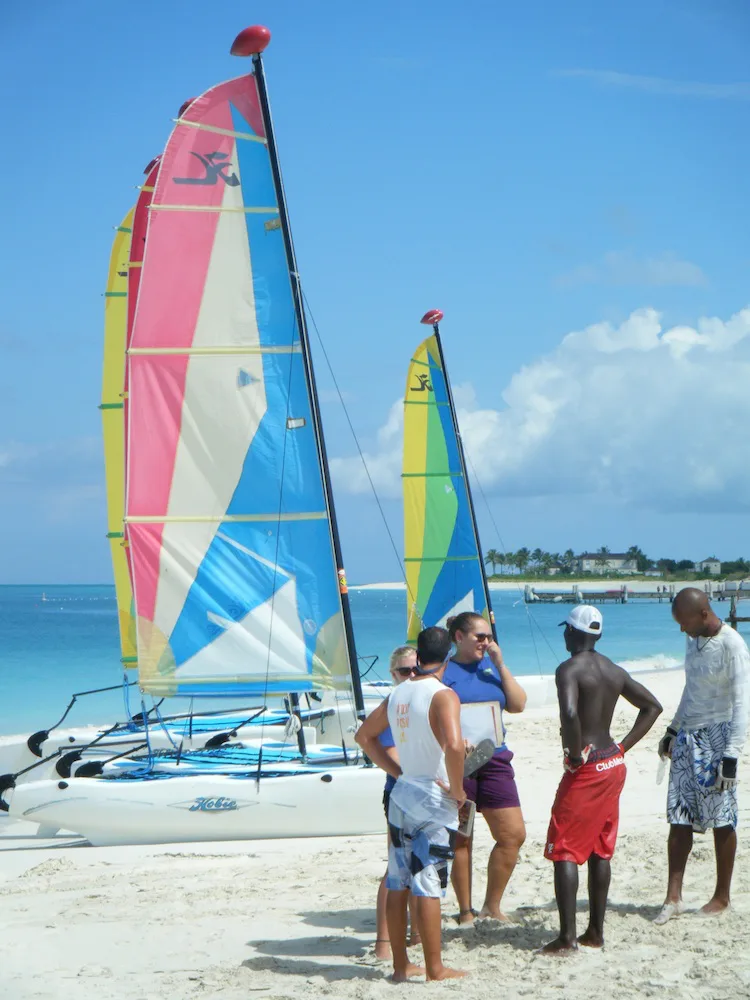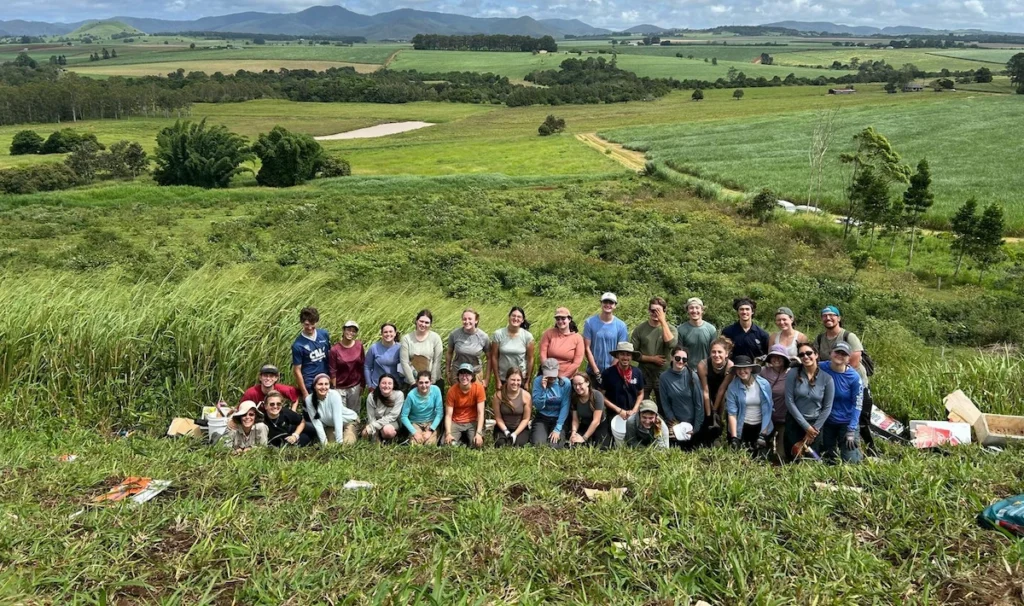Growing the SFS Research Footprint With Unique Field Trips
I’m sitting here pretty exhausted at my desk having just completed six long days in the field, but I sit here incredibly proud of our current student body. The reason for this pride is the significance of the piece of research that the Fall ’13 class at the SFS Center for Marine Resources has just completed. It is the first national-scale survey that our institution has undertaken in the Turks and Caicos Islands (TCI), and its outcome will almost certainly be the creation of new marine policy that better protects the nation’s beautiful coral reefs and important fish populations.

The class has been leading and carrying out the TCI National Seafood Survey, a survey designed to measure the consumption of all locally caught seafood in an island nation heavily dependent on its coastal fisheries. A great deal of the fish consumed in the TCI is sold in shops and restaurants without being recorded in official fisheries statistics, as is also the case for the personal catch many coastal residents consume at least weekly. Without being able to quantify these previously un-logged fisheries landings, it is impossible to determine the true effect that diets are having on the local marine environment.
To begin to understand this unknown catch, we have therefore just traveled across several islands, visiting a diverse range of communities, and surveying both residents (whose everyday diet revolves around the staples of conch and lobster) and tourists (for whom daily restaurant visits for succulent grilled grouper or tastily seasoned mahi-mahi are usually a highlight of their vacation), asking what they have been eating and how often they have been eating it. Our preliminary results show that consumption of these marine species across the island chain is second only to the Caribbean staple of jerk chicken, an extremely important finding—one with reassuring but also worrying connotations.
On one level it is a finding of hope for some of the TCI’s struggling fishing communities, where unemployment is high—continued tourist and local demand for fish will drive up prices and lead to improved local livelihood situations. On another level, it is a troubling development in a country where a number of fishery target species are likely depleted below levels considered sustainable. Species such as Nassau grouper are listed as endangered and can’t afford to end up on too many more dinner plates at high-end tourist restaurants, no matter how good they taste.
Fortunately, local leaders will soon be able to look at the results of our survey and use them to inform the creation of marine policy that should ensure continued economic prosperity for the country’s fishers and their families, whilst also ensuring that the fisheries they operate in remain sustainable so that they can be fished by future generations of Turks and Caicos islanders. The TCI Department of Environment and Marine Affairs (who commissioned this study through their input into our 5-Year Research Plan) will be able to analyze the consumption data we have produced to assess the true removal level of fish from the TCI’s waters. Unfortunately, this will probably lead to some fishing opportunities disappearing as they become deemed unsustainable, and maybe tourists will have to forgo one or two seafood meals during their holiday. Yet, such changes should be balanced out. New opportunities are opening up in the profitable lobster fishery through the utilisation of new methods, and high value fisheries for deep-water fish species look ready to come online soon. Tourists shouldn’t feel too glum either… the jerk chicken here is delicious!
I am certainly feeling the pressure of working on a project that will have some short-term negative outcomes for many of fishers whom I call neighbors, and that pressure is certainly contributing to my current exhaustion. Still, I also feel privileged to be involved on the front-line of marine policy. I’ve waited a number of years to work on such projects and it has been as affirming as it has been pressured, because I know our work should pay-off well for the local fishers after just a few years of initial adjustment. I could never have imagined being in a position to take part in such an affirming project as a college student, but because of SFS’s close working relationship with national stakeholders in the TCI and our capacity to undertake extensive field studies, this semester’s TCI class has had this opportunity. They have grabbed it with outstretched arms and have likely ensured a better future for the marine environments they traveled here to study.
Related Posts

Cinder Cone Chronicles: Lessons from Drought, Data, and Determination

Restoration on a Cinder Cone: A Syntropic Story
